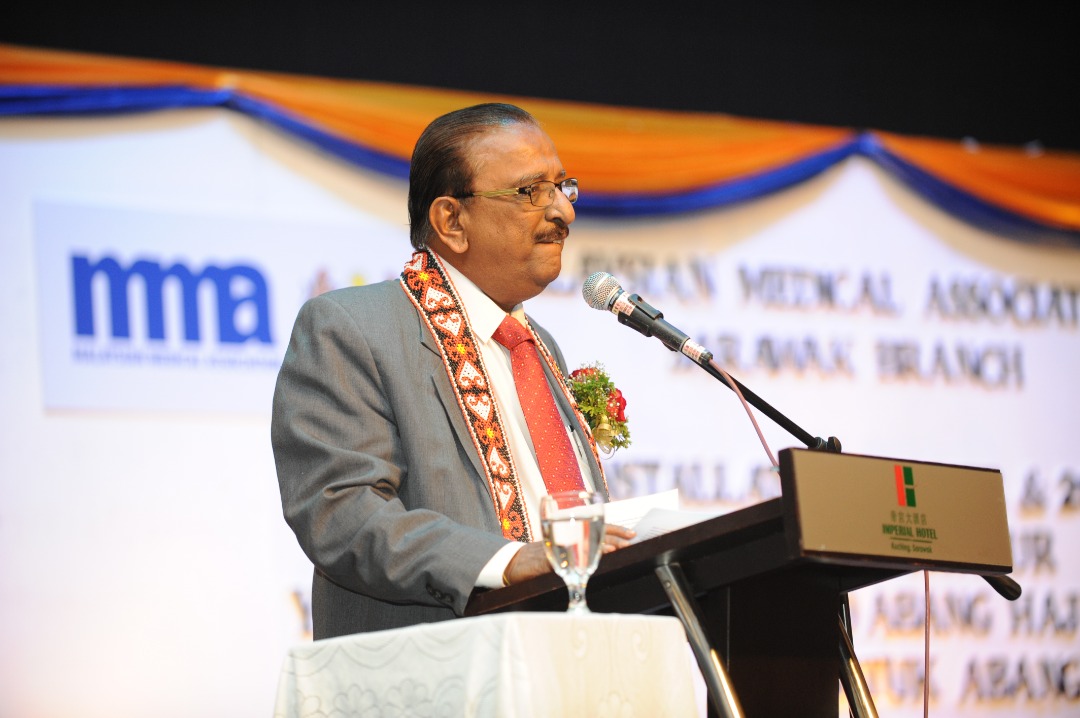KUALA LUMPUR, Dec 10 — The Malaysian Medical Association (MMA) wants vaccinations to be made mandatory, following the emergence of Malaysia’s first polio case 19 years after eradicating the disease.
The New Straits Times (NST) quoted quoted MMA president Dr N. Ganasbakaran as saying that none of the vaccines in the country’s immunisation schedule, including inactivated polio vaccine, are mandatory, despite the diseases in the schedule being either life-threatening or potentially crippling.
“Polio is a vaccine-preventable disease,” reminded Dr Ganabaskaran, the head of the country’s largest group of doctors, adding that a list of recommended vaccines from birth to 15 years of age are available in the immunisation schedule.
Noting that while the case of a three-month-old boy from Tuaran, Sabah, who has been diagnosed with vaccine-derived poliovirus type 1 (VDPV1), 27 years after the last polio case in the country, was an isolated one, Dr Ganabaskaran said parents should anyway get their children vaccinated as a preventive measure.
Tests showed that the infant Malaysian boy was infected with a polio strain that shared genetic links with the virus detected in the Philippine cases, which reported its first cases of polio since 1993 in September.
Polio, which mainly affects children below five years of age, invades the nervous system and can cause total paralysis in hours. There is no cure for polio, but it can be prevented with polio vaccine immunisation.
The vaccination programme in Malaysia is free of charge at all government health care facilities for Malaysians, while a nominal fee is charged for non-Malaysians.
Health Minister Dzulkefly Ahmad yesterday, when asked if the government plans on making vaccination compulsory in the country following the incident, said it is focusing its efforts on ensuring that its immunisation programme is successfully implemented.
“We will do this first before making it mandatory by strengthening the immunisation programme throughout the country, particularly at Orang Asli settlements,” he said on the sidelines of a Ministry of Health (MOH) event in Putrajaya.
Dzulkefly previously said a steering committee will present its findings to MOH soon on whether immunisation vaccination will be made compulsory in Malaysia. The steering committee has sought views from NGOs, government agencies and the private sector, he said.
Dr Ganabaskaran was also quoted as calling for a National Vaccine Injury Compensation Programme, or NVICP, to be set up by the federal government.
The NVICP is a compensation system in the United States for families and patients of those who suffer from serious adverse reactions from required childhood vaccines that aims to stabilise the supply and price of vaccines. It was formed in response to a threat to the vaccine supply in the 1980s.
Dr Ganabaskaran, meanwhile, said while disease control at border posts is important to prevent highly infectious viral diseases like polio from entering the country, access to health care should be available to all.
NST also reported him as lauding MOH for detecting the polio case and for its precautionary measures taken to control the outbreak, which he said has been boosted since an outbreak was declared in the Philippines in September.
Dzulkefly yesterday said that MOH’s stance is that all patients who come to MOH health care facilities — be they stateless or undocumented — will be able to receive treatment and vaccination.








